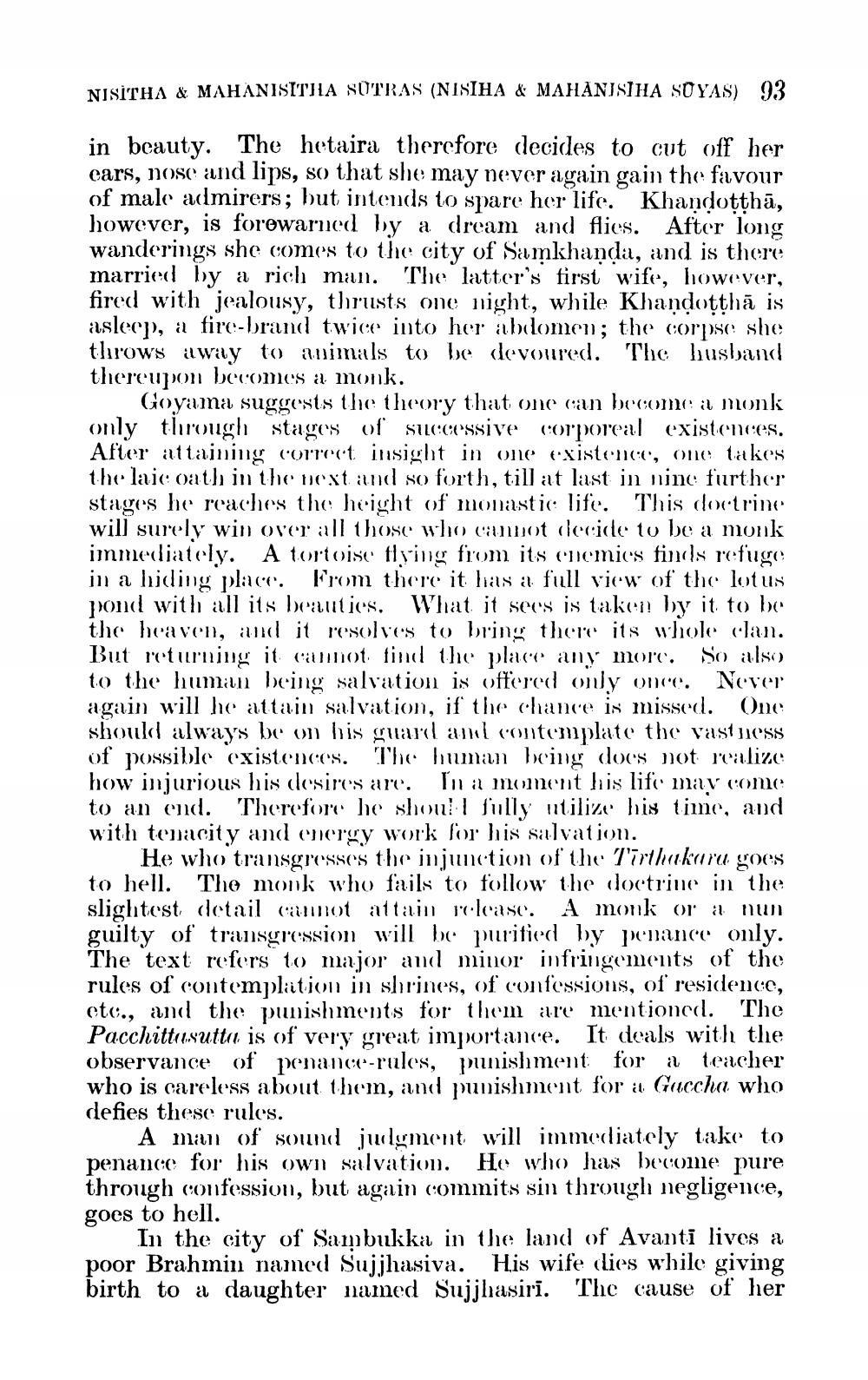________________
NISITHA & MAHANISITHA SÜTRAS (NISIHA & MAHANISĪHA SOYAS) 93
in beauty. The hetaira therefore decides to cut off her cars, nose and lips, so that she may never again gain the favour of male admirers; but intends to spare her life. Khandotthā, however, is forewarned by a dream and flies. After long wanderings she comes to the city of Samkhanda, and is there married by a rich man. The latter's first wife, however, fired with jealousy, thrusts one night, while Khandotthā is asleep, a fire-brand twice into her abdomen; the corpse she throws away to animals to be devoured. The husband thereupon becomes a monk.
Goyama suggests the theory that one can become il monk only though stages of successive corporeal existences. After attaining correct insight in one existence, one takes the laic oath in the next and so forth, till at last in nine further stages he reaches the height of monastic life. This doctrine will surely win over all those who cannot decide to be a monk immediately. A tortoise flying from its ciemies finds refuge in a hiding place. From there it has a full view of the lotus pond with all its beauties. What it sees is taken by it to be the heaven, und it resolves to bring there its whole clan. But returning it anot find the place any more. So also to the human being salvation is offered only once. Never again will be attain salvation, if the chance is missed. One should always be on his guard and contemplate the vastuess of possible existences. The human being does not realize how injurious his desires are. In il moment his life may come to an end. Therefore he shoull fully ntilize his time, and with tenacity and energy work for his salvation.
He who transgresses the injunction of the Tirthakura goes to hell. The monk who fails to follow the doctrine in the slightest detail cammot attain release. A monk or a nun guilty of transgression will be purified by penance only. The text refers to major and minor infringements of the rules of contemplation in shrines, of confessions, of residence, etc., and the punishments for them are mentioned. The Pacchittusuttu is of very great importance. It deals with the observance of penance-rules, punishment for a teacher who is careless about them, and punishment for i Guccha who defies these rules.
A man of sound judgment will immediately take to penance for his own salvation. He who has become pure through confession, but again commits sin through negligence, goes to hell.
In the city of Sambukka in the land of Avanti lives a poor Brahmin named Sujjhasiva. His wife dies while giving birth to a daughter named Sujjhasiri. The cause of her




